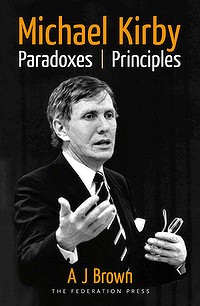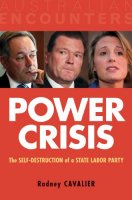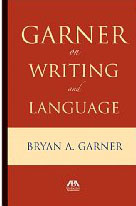CELEBRITY JUDGE: Michael Kirby
 |
MICHAEL KIRBY ,PARADOXES – PRINCIPLES by AJ BROWN (THE FEDERATION PRESS 2011)
This biography of Michael Kirby is a welcomed addition to anyone with an interest in the judiciary and Australian society. Dr Brown, a professor of public law at Griffith University has filled an important gap for judicial biographies. Biographies in Australia about judges are not common. Every US Supreme Court justice merits at least one biography. In Australia, one can point to major works about Sir Owen Dixon and Sir Garfield Barwick, however, beyond those two the attention of biographers on those who have sat on the High Court has been low. However, Justice Michael Kirby is in an entirely different category. He has been described as Australia’s first “celebrity judge”. Such a status was brought about by his willingness to write and speak profoundly on a broad range of issues . This excellent work covers many decades from the sixties to now. Relevantly, this book has been reviewed in this journal because Michael Kirby’s first appointment was when he was aged 35 to the Australian Conciliation and Arbitration Commission with the title of Justice. Although did not serve for very long in that industrial tribunal it was a springboard for him to establish his reputation as a public intellectual as Chairman of the Australian Law Reform Commission. |
- This biography of Michael Kirby is a welcomed addition to anyone with an interest in the judiciary and Australian society. Dr Brown, a professor of public law at Griffith University has filled an important gap for judicial biographies. Biographies in Australia about judges are not common. Every US Supreme Court justice merits at least one biography. In Australia, one can point to major works about Sir Owen Dixon and Sir Garfield Barwick, however, beyond those two the attention of biographers on those who have sat on the High Court has been low. However, Justice Michael Kirby is in an entirely different category. He has been described as Australia’s first “celebrity judge”. Such a status was brought about by his willingness to write and speak profoundly on a broad range of issues . This excellent work covers many decades from the sixties to now. Relevantly, this book has been reviewed in this journal because Michael Kirby’s first appointment was when he was aged 35 to the Australian Conciliation and Arbitration Commission with the title of Justice. Although did not serve for very long in that industrial tribunal it was a springboard for him to establish his reputation as a public intellectual as Chairman of the Australian Law Reform Commission.
- Clearly the subject co-operated with the author but this work is not mere hagiography. It also doesn’t appear to be a work where the subject exercised too much restraint in terms of what could and could not be published. Professor Brown’s task was much easier when one has a subject, like Michael Kirby, who from university days has kept a journal and constantly snapped photographs of people with whom he happened to be. Also, his articles and speeches have given the biographer a wealth of material. One can’t imagine any other judge in Australian history, other than those who have been serving politicians, who have left behind such a record. One would expect that this work is probably the first of many to be written about this brave judge. The reason I say brave, is that he was prepared to push the limits of what was hitherto considered acceptable for the judicial role. Therein lay a constant tension between him and a number of his more conservative colleagues. Traditionally, upon being appointed to the bench, judges withdrew from the arena so as to avoid any suggestion of pre-judgment or bias in relation to issues which may come before them. This tradition Michael Kirby regularly failed to follow, sometimes to his embarrassment or detriment. An example of this preparedness to speak out perhaps too soon was in the case of Bailey v DPP .Justice Kirby was on an appeal bench and after judgment had been reserved but yet delivered spoke about the case at an international conference.
- . The biography also deals in the personal. It traces the dilemma of a person who was imbued with the importance of the upholding of the law, but at the same time coming to terms with his homosexuality. This was particularly at a time in New South Wales when even consenting homosexual acts between adults were illegal. The biographer doesn’t ignore this apparent contradiction .Neither does he ignore that long after the illegality of such acts were removed from the statutes Michael and his partner Johan remained, apart from close and family friends, firmly in the closet. This in 21st Century Australia is hard to understand, however, one must acknowledge that the past is a foreign country. However, since he did come out, he has generously and powerfully supported many issues for the gay community. Despite the unspeakable Senator Heffernan, Michael Kirby is recognised widely as a great Australian and has become a role model to many people struggling with their own sexuality and being true to themselves.
- However merely to refer to him as a gay judge is to undervalue and to miss the broad contribution he has made to society in matters such as international law, constitutional reform and human rights. His enduring commitment for constitutional monarchy and public education have won him many admirers for his willingness to swim against the tide. The fascinating aspect about his life is that it is difficult to attach a label to him, perhaps ‘progressive traditionalist’? Justice Kirby is energetic and comparatively a young man, though past the age of compulsory judicial senility , one can’t imagine him spending too much time on a deck chair watching boats sail past in Rose Bay.



